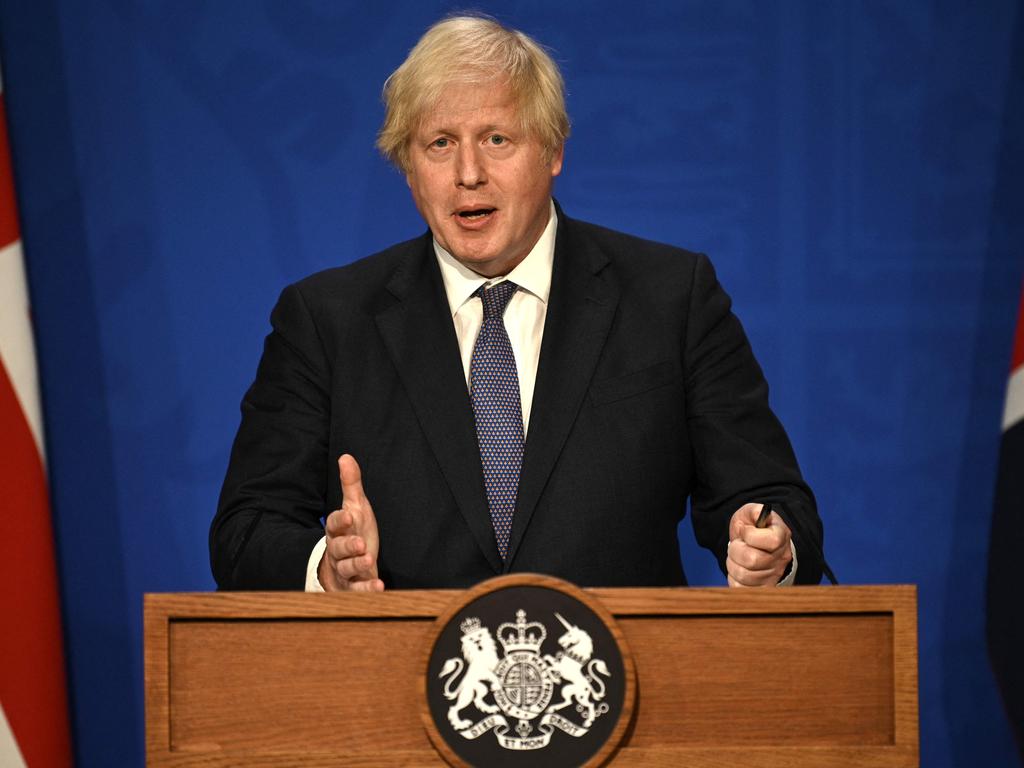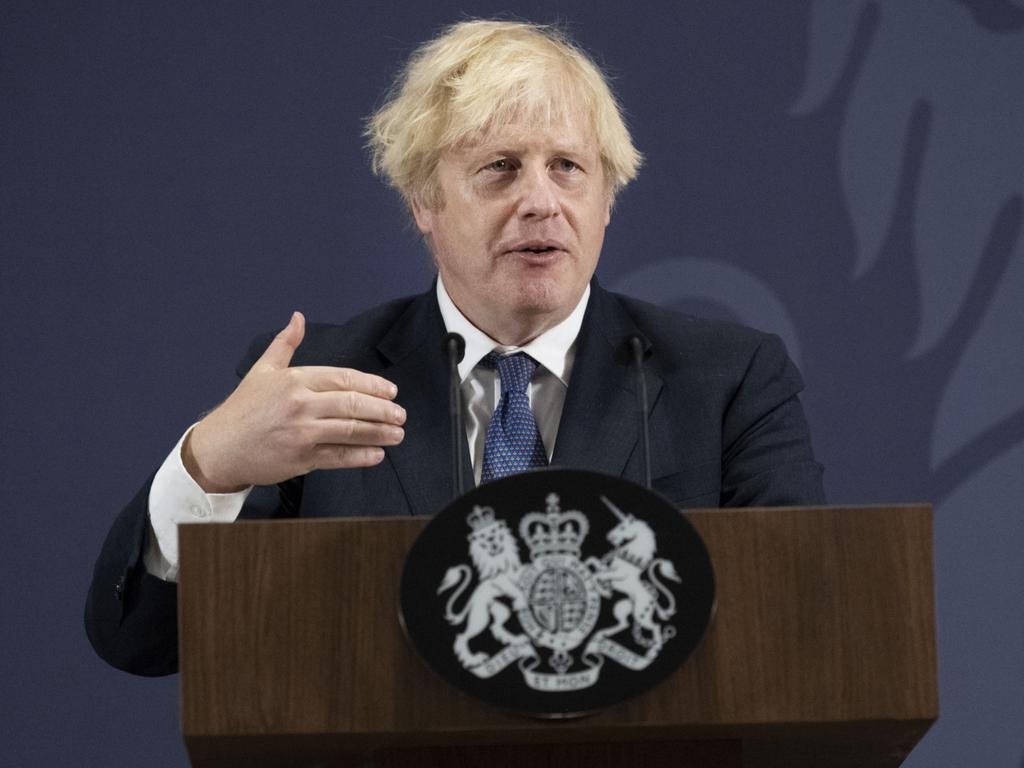Dilatory, complacent: How Boris Johnson got coronavirus so wrong
Dominic Cummings’ revelations show how badly the PM handled the pandemic. He’s a liability every time the UK faces a complex situation requiring hard decisions.

The Dominic Cummings-Laura Kuenssberg encounter (on the BBC, video below) was wonderful theatre. There was something about the aesthetics of the plain white shirt, the plain shaved face and plain bald head that suggested a man clearing the decks in order to meet his Creator.
And what immediately caught attention was the revelation that by January 2020 this Baron Frankenstein so despaired of his flawed creature that he plotted to have it destroyed and make another to replace it. Yes, he admitted, I made Johnson and yes, I failed to unmake him. That, he implied to the viewer, is now your job if you’re up to it.
Distracted though I was by Cummings’s account of Johnson’s plan to kill the Queen with Covid ("but I see her every Wednesday!"), part of the interview took me to a much darker place. Like millions of others, perhaps a majority, there have been periods in the pandemic when I wanted to jump in that hole and pull it in after me.
My worst moments came last winter as I realised that, despite the incredible achievement of scientists in developing effective vaccines less than a year after the virus was identified and despite the early rolling out of those vaccines, we were nevertheless doomed to have scores of thousands of people die from Covid. Die unnecessarily in plain sight of salvation. All through the early part of the year we vaccinated in one side of the NHS, and loaded the hearses from the other. How could this have happened?
The Cummings interview told part of that story. But this week we could also cross-reference it with the account given by one of our top scientists, the director of the Wellcome Trust and member of Sage, Sir Jeremy Farrar. His new book, serialised in The Times, tells of the scientific community and the virus, and how the governments of the United Kingdom responded to our greatest peacetime disaster for a century.

I need to condense Farrar’s and Cummings’s recollections of the origins of the pandemic in January to March last year. If the government was slow to recognise the nature of the threat, Johnson dilatory in his attendance at key meetings and the March lockdown a fortnight or so too late, then at least, as Farrar writes, if you were charitable, “you could just about claim that we did not know the epidemic was coming and the data was poor”.
So let’s vault over the first wave, which nearly carried off Johnson among others, and arrive in September of 2020. When, as Farrar says, “we were collecting some of the best epidemiological data in the world. And that data was clearly showing the epidemic was climbing, week after week after week”. No excuses then for not knowing roughly what was coming. Or what needed to be done about it.
Readers will recall the constant refrain from ministers that they were at all times “following the science”. But Sage met on September 21 and recommended a “package of interventions” including a circuit-breaker lockdown, advice to work from home, stopping the mixing of households and closing non-essential indoor services. Otherwise, said an accompanying paper, Britain could experience “a very large epidemic with catastrophic consequences in terms of direct Covid-related deaths and the ability of the health service to meet needs”.

This, apparently, was science the government was not prepared to follow. There was the 10pm curfew for pubs and restaurants and then the creation of local “tiers” resulting in public health messaging so complex ministers couldn’t explain it.
Back in No 10 Cummings was tearing at the place where his hair had been. Unbeknown to the rest of us Johnson had decided not only to unfollow the science but to regret the science he had already followed. It had been a mistake to lock down in the first place, he allegedly told Cummings (I say “allegedly” but I am prepared to bet that this is true).
By mid-October Covid deaths were running at 100 a day and rising. Keir Starmer called for the circuit breaker that Sage had recommended three weeks earlier. And the prime minister sent a WhatsApp message to Cummings. Pointing out that the average age of those dying from Covid was 81 for men and 85 for women Johnson added, “that is above life expectancy. So get Covid and live longer. Hardly anyone under 60 goes into hospital … and of those virtually all survive. And I no longer buy all this NHS overwhelmed stuff. Folks I think we may need to recalibrate. There are max 3m in this country aged over 80.”
Both Cummings and Farrar have an idea where all this was coming from. Johnson’s “instincts” are famously libertarian, which is an ideological way of saying epically complacent. Not long before he sent this message the Great Barrington Declaration (it is Barrington, in Massachusetts, that is Great by the way) of anti-lockdown scientists was published, condemning restrictions and recommending, in effect, the virus be let rip. In September Johnson and Sunak had met some of the people behind the declaration, which Farrar describes as “ideology masquerading as science and the science was still nonsense”. But a significant section of Tory MPs loved it.
And then Johnson promised us Christmas. We could all mingle indoors, hearth fires lit and pudding and virus being passed around, and take a break from Covid. It was insane. When Johnson backed down, it was too late. All the members of my extended family who caught Covid caught it during the Christmas break of 2020. Every single one. None died, but tens of thousands of Britons were less fortunate. We lost more people in the second wave than in the first.
Vaccine in, coffins out. Johnson endlessly photo-opping in vaccine centres and wisely shunning the cemeteries. As of last week for every million inhabitants Germany had lost 1,091 to Covid, France 1,648 and the UK 1,882. And they’ve more or less caught up on vaccination. Put that on your flag and wave it.
There are, as both Cummings and Farrar argue, very good reasons to immediately convene an inquiry into our handling of the pandemic. The most important are not about individuals but systems and mass behaviour.
But there is another reason not to delay till 2022 as ministers plan. Despite his name Cummings has gone, but Johnson is still there, waving his arms about, incapable of acts of concentration and a liability every time this country faces a complex situation requiring hard decisions. How he acted last autumn, and why, is a matter of urgent national interest.
The Times







To join the conversation, please log in. Don't have an account? Register
Join the conversation, you are commenting as Logout